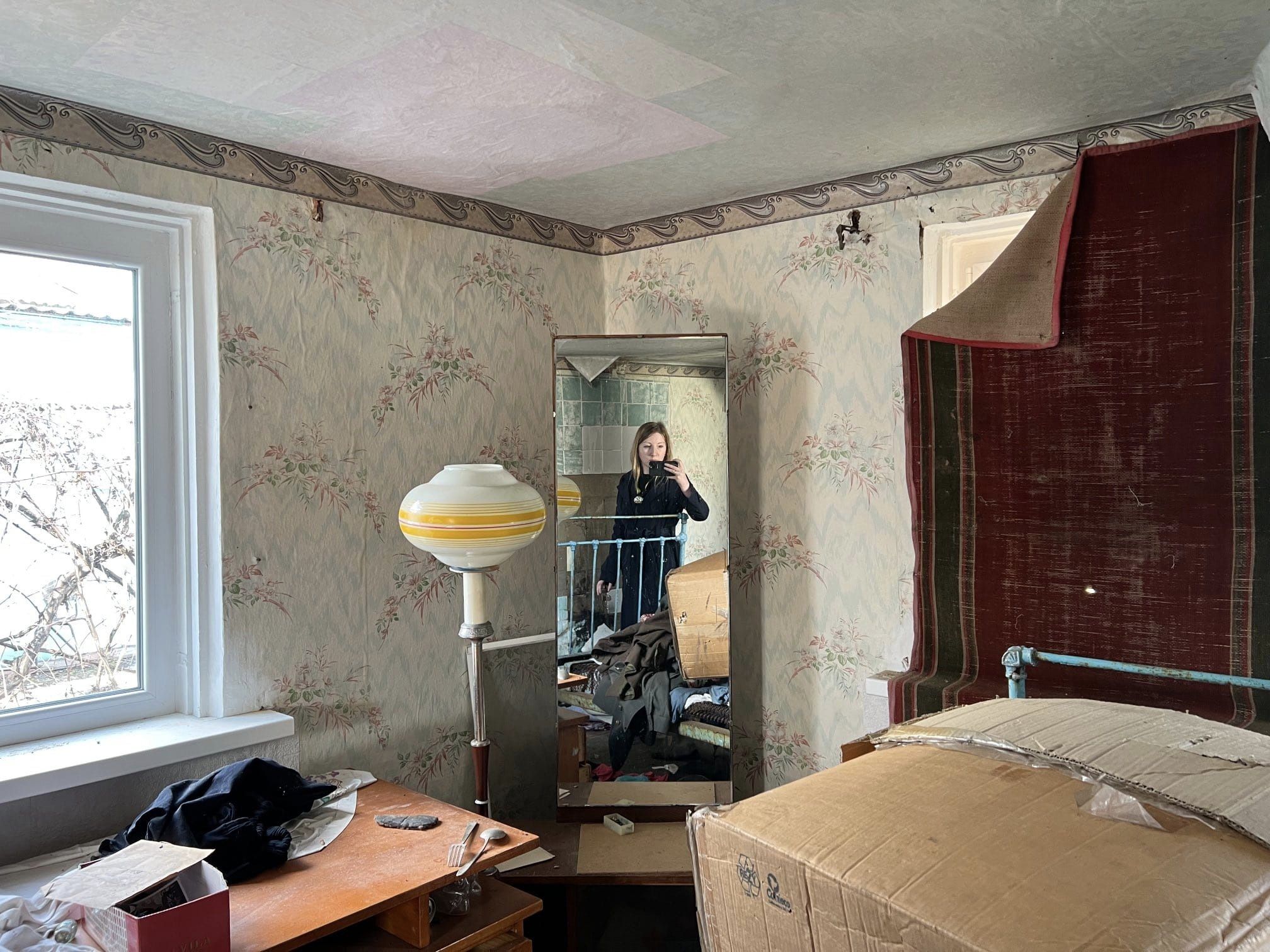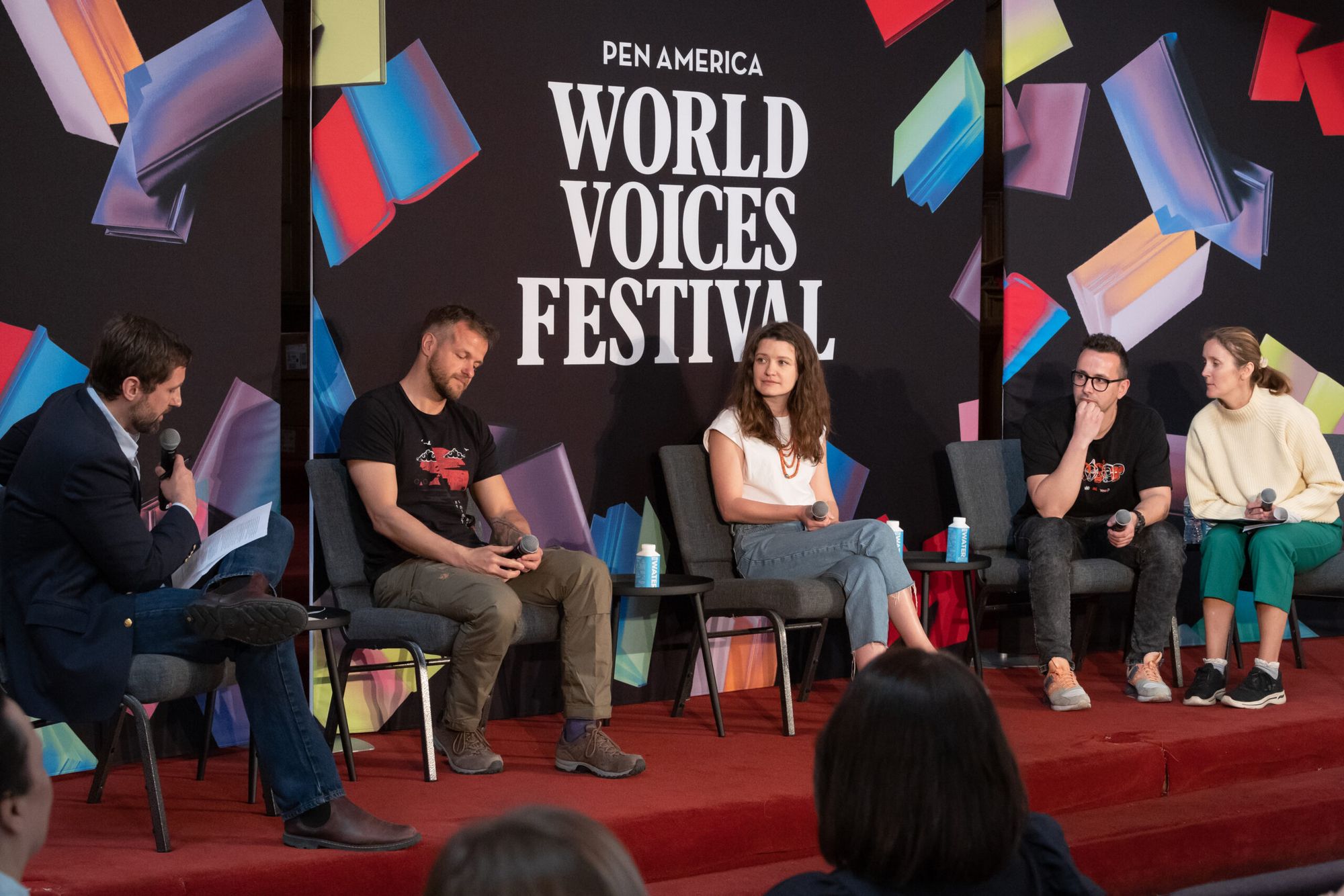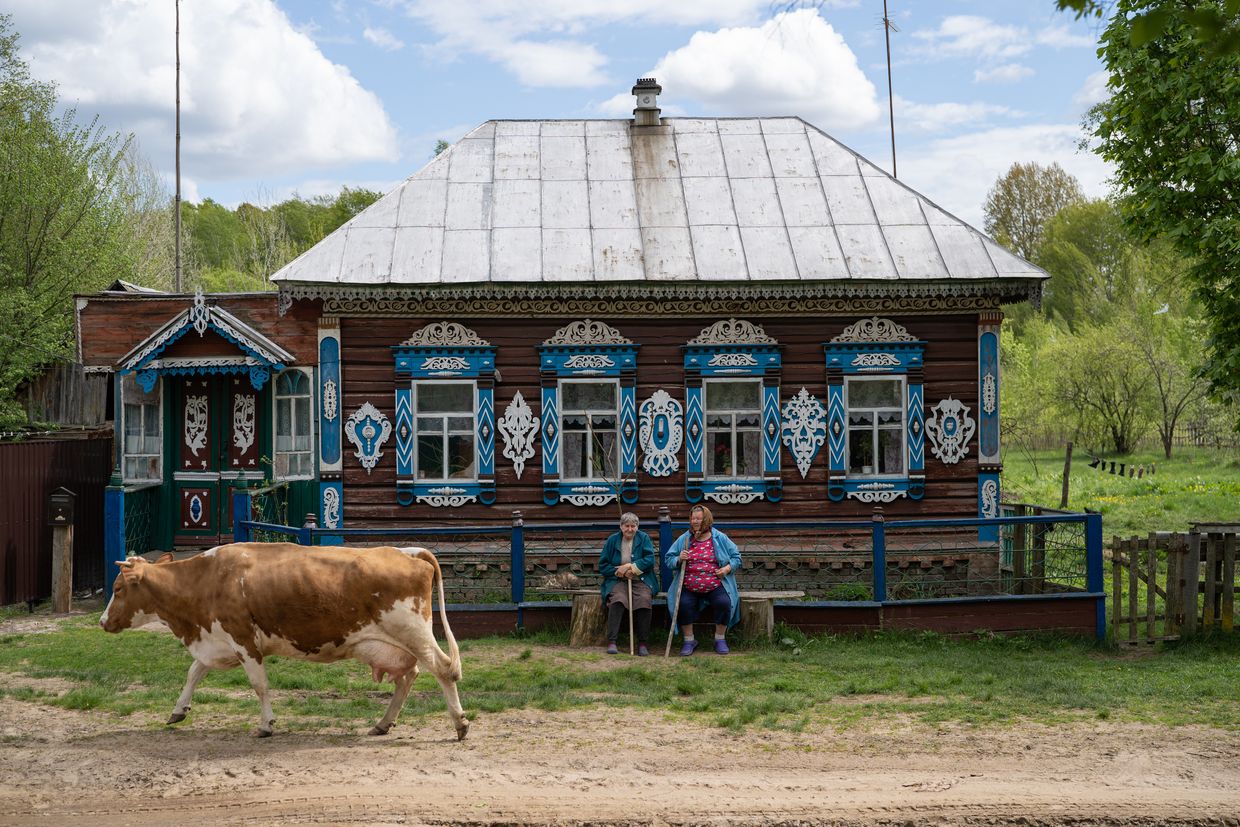Literature community commemorates Ukrainian writer killed by Russian attack

A little over three months after a Russian missile strike in the eastern Ukrainian city of Kramatorsk killed writer Victoria Amelina, her colleagues and readers gathered at the 30th annual Lviv BookForum festival to honor her memory.
British journalist Christina Lamb moderated the event titled “Women, War, and Justice: In Memory of Victoria Amelina.”
The panel featured PEN Ukraine’s Executive Director Tetyana Teren, Lviv BookForum’s Program Director Sofia Cheliak, and human rights lawyer Oleksandra Matviichuk. They delved into Amelina's enduring legacy as a writer and war crimes researcher, highlighting the importance of ensuring that her work lives on, even in her absence.
“It’s still very difficult and poignant to be talking about Victoria without her, especially in her native town, the town that was so dear and close to her, and especially within the festival that she was so closely affiliated with,” Teren said.
Twenty people from across Ukraine’s cultural sphere, including Amelina, are listed by PEN Ukraine as having been killed by Russia’s war in just 2023. The organization estimates that over 70 have been killed since the full-scale invasion began last year.
Amelina's death propelled her to an even greater global recognition, reaching beyond her admirers in the literary world. However, one of the driving messages of the event was that Amelina – and indeed every victim of Russia’s war – should not be reduced to a symbol or statistic. They were individuals with their own aspirations and dreams, and those close to them continue to grieve their absence daily.

Anguish and honor
This year’s BookForum included 150 events across five locations in central Lviv from Oct. 4-8, and the festival organizers informed Suspilne Kultura that more than 20,000 people are estimated to have attended despite the ongoing threat of Russian missile and drone strikes.
In previous years, Amelina was a regular participant in the festival, and had it not been for her death, Lamb noted that she would have taken part in this year’s festivities.
Festival goers gathered to listen to “Women, War, and Justice: In Memory of Victoria Amelina” speakers at the Powder Tower, the remnant of a 16th-century fortification.
The event began with a reading of Amelina’s 2022 poem “Story for Return,” which explores the uncertainty civilians face when they are forced to flee their homes during war:
When Mira left home, she took a necklace from the jewelry box.
When Tim left the city, he picked up a small stone on the street.
When Yarka left the garden, she took an apricot pit.
When Vira left home, she didn't take anything at all.
"I'll be back soon," she said,
and she didn't take anything.
After a collective moment of silence, Teren noted that it was the first major event to commemorate Amelina since her death. This was a realization that brought “great anguish and pain,” but it was a “great honor” to be her voice, Teren added.
The panel participants recalled how Amelina was known for her willingness to lend a helping hand to others, including strangers. At the start of the full-scale invasion, she volunteered in warehouses to organize humanitarian aid, transport refugees to the border, and even take in people’s pets.
Teren said Amelina was plagued by the feeling her work was “insufficient” and was always determined to do more, so she went on volunteer trips with PEN Ukraine to liberated and front-line territories.
Some of the intended purposes of these trips include documenting Russia’s crimes against Ukrainian culture, providing aid from writers and journalists for humanitarian and military needs in the region, and collecting stories of the people who survived the Russian occupation or siege.
According to Teren, these trips were likely one of the factors that motivated Amelina to become a war crimes researcher with the human rights organization Truth Hounds.
As a war crimes researcher, Amelina traveled to recently liberated territories in eastern and southern Ukraine and spoke to the survivors of Russian occupation. She documented the crimes they witnessed firsthand and passed these findings to the Prosecutor General’s Office, the International Criminal Court (ICC), and other relevant legal bodies.
Matviichuk, who heads the non-profit organization Center for Civil Liberties and was the first Ukrainian recipient of the Nobel Prize for her work in human rights, noted that Amelina had a talent “like no one else” when it came to using her skills as a war crimes researcher.
“Law is about human beings ultimately, or at least it should have people at the center; this is what makes law similar to literature,” Amelina explained to the Kyiv Independent in April.
Amelina’s work was cut short when she became a victim of Russian aggression herself. In late June, she accompanied a delegation of Colombian journalists to Kramatorsk in Donetsk Oblast. They were dining at a restaurant in the city center that was popular with volunteers, journalists, and soldiers when a Russian missile struck.
The State Emergency Service reported in late June that 12 people were killed, and 60 people were injured, including a child.
PEN Ukraine announced that Amelina had succumbed to her injuries on July 1. Her death sent shockwaves not only through the Ukrainian literature community but also resonated with people worldwide. In the wake of Russia’s full-scale invasion, she had started to become more widely recognized for her efforts to promote Ukrainian culture abroad.


While her death made her a symbol for many of Ukraine’s struggle against Russian aggression, those who knew her personally want her to be remembered for more than that.
During the panel, Cheliak recalled how she had become upset when a well-meaning friend of hers repeatedly remarked shortly after Amelina’s death that it was “a great loss for Ukraine.”
“She was a person, she was funny, she was my friend. For me, the biggest loss is not someone who is supposed to stand up there on a pedestal, someone who becomes a symbol, even though she is now clearly turning into a symbol. It’s the loss of someone near and dear to you,” Cheliak said.
Since Amelina’s death, some have even called her a member of a new generation of the Executed Renaissance, a reference to the Ukrainian artists during the 1930s who were imprisoned and killed during the Stalinist purges.
Volodymyr Vakulenko, a children’s book author who was killed in the spring of 2022 during the Russian occupation of his village in Kharkiv Oblast and whose occupation diary Amelina later found buried under a cherry tree outside his house, is often referred to as another member of this so-called new generation.
Yet Amelina was “very wary” about such comparisons for Ukraine’s current generation, according to Cheliak.
Continuing Amelina's mission
During Lviv BookForum, Teren told the audience that it was important for the deaths of Ukrainians to be remembered as more than just statistics, which is why the Ukrainian literature community is finding ways to “continue the causes and testaments left behind by these people” and “tell the stories of our fallen artists.”
One example of this is the ongoing efforts to secure the future of Amelina’s New York Literature Festival.
Amelina founded the New York Literature Festival in 2021, which took place in the front-line town of Niu-York in Donetsk Oblast.
The exact origins of the town’s name are disputed, but it dates back to the 19th century. Some believe the name originates from Mennonites from the city of Jork in northern Germany who settled in the region.
In 1951, the Soviet regime changed the town's name to Novhorodske, which it continued to be called until Ukrainian authorities officially changed it back to Niu-York in 2021.
In the scope of the New York Literature Festival, Amelina also organized camps for local children, which included events like an essay competition, film screenings, and lectures.
According to Cheliak, the purpose of the festival was twofold. Amelina envisioned the festival as a way to bring something meaningful to the front-line community, which has been impacted by Russia’s war since 2014. Amelina also wanted her colleagues who knew little about or had never been to eastern Ukraine to discover this part of the country.
Like many Ukrainians, Amelina wanted to break down the preconceived notions of a strong cultural divide between the east and west of the country. This was partly due to her roots. Amelina was born in Lviv, but her family came from the Slobozhanshchyna, a historical region of northeastern Ukraine.
The festival was postponed in 2022 due to Russia's full-scale invasion, but Amelina’s friends and colleagues are determined to resume holding the festival in Niu-York as soon as it becomes safe enough to do so.
In the meantime, the festival’s camps for children from eastern Ukraine are still being conducted. Fourteen children who participated in the festival events two years ago were invited to the village of Slavske in Lviv Oblast this September.
Olya Rusina, a children’s book author and radio presenter, announced in late September that a fundraising drive to continue the work of the New York Literature Festival through a non-governmental organization had been successful.
Over half a million hryvnias ($13,700) in donations have been collected to support the continued work of the NGO, Teren said during the event at Lviv BookForum.
“The most important thing Victoria would have wanted is for her work to continue and for the New York Literary Festival to continue,” according to PEN Ukraine’s executive director.
“It is very important that the cultural community is doing everything possible to continue the work of the person we all loved so much.”
Note from the author:
Hi, this is Kate Tsurkan, sharing an important culture-related story from Ukraine. Due to Russia’s ongoing genocide, most stories about Ukrainian culture will, unfortunately, be related to war for years to come. But Ukrainian culture is finding ways to persevere and sharing these stories is important.
If you liked reading this article, please consider continuing to support our reporting to see more like this.














